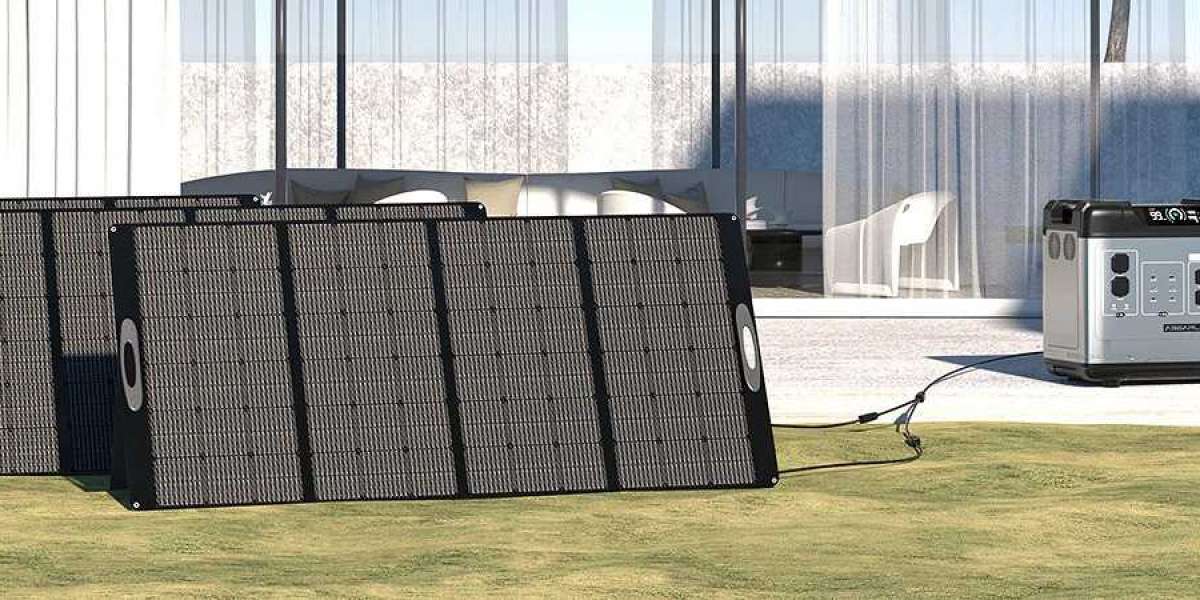Solar generators are a reliable and eco-friendly source of power, whether you're using them for off-grid living, RV trips, or emergency backup. However, like any piece of equipment, solar generators require proper care and maintenance to ensure they perform optimally and have a long lifespan. In this article, we’ll explore essential maintenance tips to help you maximize the longevity of your solar generator.
1. Regularly Inspect and Clean Solar Panels
Solar panels are the heart of your solar generator system, converting sunlight into electricity. Over time, dirt, dust, bird droppings, and other debris can accumulate on the panels, reducing their efficiency. To maintain optimal performance, clean your solar panels regularly.
Use a Soft Cloth or Sponge: Avoid abrasive materials that could scratch the surface of the panels. A soft cloth, sponge, or brush with soft bristles is ideal.
Clean with Water: Use lukewarm water to remove dirt and grime. If needed, you can add a mild soap, but avoid harsh chemicals that could damage the panels.
Check for Damage: While cleaning, inspect the panels for any signs of damage, such as cracks or loose connections. Address any issues promptly to prevent further damage.
Avoid Shaded Areas: Ensure that the panels are positioned in a location where they receive maximum sunlight, and remove any objects that may cause shading.
2. Monitor Battery Health
The battery is another crucial component of your solar generator. Proper battery care is essential for maintaining the overall health and longevity of your system.
Keep Batteries Charged: Avoid letting the battery discharge completely. Regularly charging the battery, even when not in use, can prevent it from losing capacity over time.
Store Properly: If you're not using your solar generator for an extended period, store it in a cool, dry place. Extreme temperatures can degrade the battery's performance.
Avoid Overcharging: While most modern solar generators come with built-in protection against overcharging, it's still a good practice to monitor the charging process, especially if you're using external solar panels.
Check Battery Levels: Periodically check the battery's charge level and health status, especially before and after extended use. Some solar generators have a built-in display that shows the battery status, making it easier to monitor.
3. Protect from Extreme Temperatures
Solar generators are designed to be durable, but extreme temperatures can still impact their performance and lifespan.
Avoid High Heat: High temperatures can cause the battery to overheat, reducing its efficiency and potentially causing permanent damage. Try to keep your generator in a shaded area during hot weather.
Prevent Freezing: On the other end of the spectrum, freezing temperatures can also harm the battery and other components. If you're using your solar generator in cold climates, consider insulating it or bringing it indoors when not in use.
Ventilation: Ensure that your solar generator has proper ventilation, especially during operation. Good airflow will help regulate the temperature and prevent overheating.
4. Keep Connections Tight and Corrosion-Free
Loose or corroded connections can lead to power loss and inefficiencies in your solar generator system.
Check Connections Regularly: Periodically inspect all the connections between the solar panels, the battery, and the inverter. Ensure they are tight and secure.
Clean Corroded Terminals: If you notice any corrosion on the terminals, clean them with a mixture of baking soda and water, using a wire brush to remove any residue. After cleaning, apply a thin layer of petroleum jelly to prevent future corrosion.
Use Proper Cables: Ensure that the cables used for connecting the components are of the right gauge and length. Using incorrect cables can lead to voltage drops and reduced efficiency.
5. Regularly Update Firmware
Many modern solar generators come with software that controls various functions, such as battery management and power output. Manufacturers often release firmware updates to improve performance, fix bugs, and add new features.
Check for Updates: Periodically check the manufacturer's website or app for any available firmware updates.
Follow Instructions Carefully: When updating the firmware, follow the manufacturer's instructions carefully to avoid any issues during the update process.
Backup Settings: If possible, backup any custom settings before performing a firmware update, as the update process may reset the generator to factory defaults.
6. Store Properly When Not in Use
Proper storage is crucial for maintaining the longevity of your solar generator, especially during long periods of inactivity.
Keep in a Dry Place: Moisture can damage electrical components and lead to corrosion. Store your generator in a dry, well-ventilated area to prevent moisture buildup.
Disconnect Solar Panels: If you're storing the generator for an extended period, disconnect the solar panels to prevent any accidental charging or power drain.
Cover the Generator: If storing outdoors or in a dusty environment, consider covering the generator to protect it from dust, dirt, and other debris.
7. Perform Routine Testing
Even if you're not using your solar generator frequently, it's a good idea to perform routine testing to ensure everything is in working order.
Test Power Output: Periodically test the generator's power output by connecting it to various devices. This helps you ensure that the generator is functioning correctly and can still provide the power you need.
Check Charging Efficiency: Connect the solar panels and monitor how efficiently the generator charges. If you notice any significant drop in performance, it may be time for a thorough inspection or maintenance.
Inspect for Wear and Tear: Check all components, including the panels, cables, and housing, for any signs of wear and tear. Address any issues promptly to prevent further damage.
Conclusion
Proper maintenance is key to extending the life of your solar generator and ensuring it remains a reliable source of power. By regularly cleaning your solar panels, monitoring battery health, protecting the generator from extreme temperatures, and performing routine checks, you can maximize the efficiency and longevity of your system. Whether you're using your solar generator for off-grid living, RVing, or emergency backup, these maintenance tips will help keep your generator in top shape for years to come.








